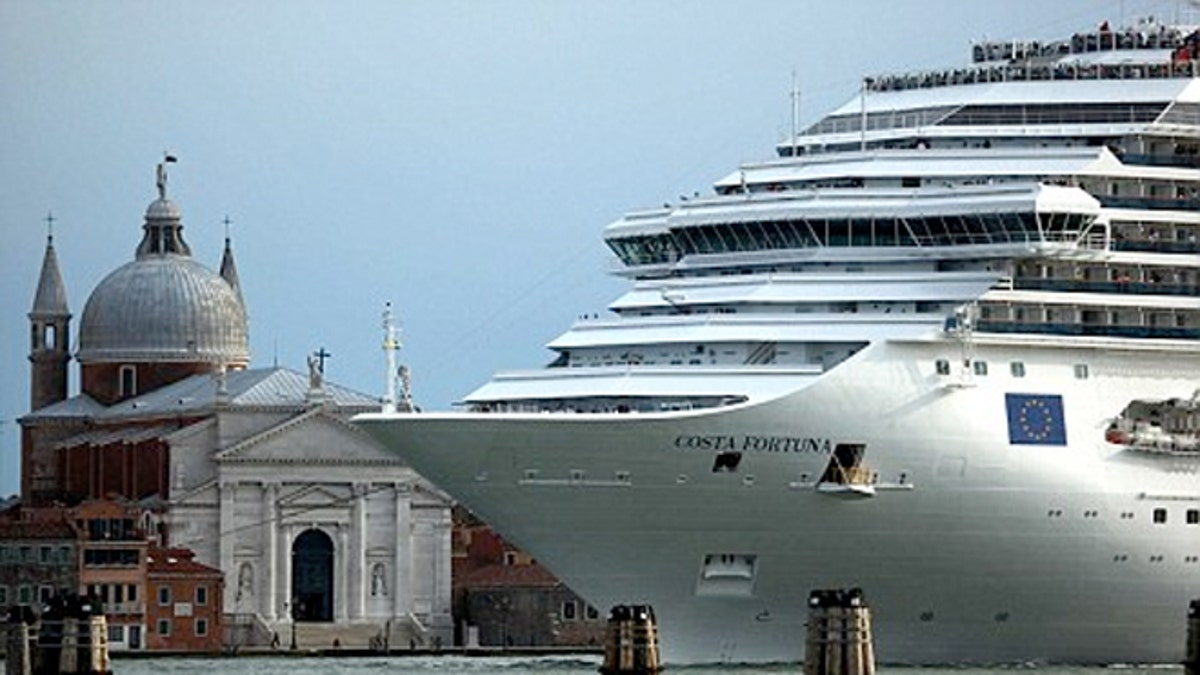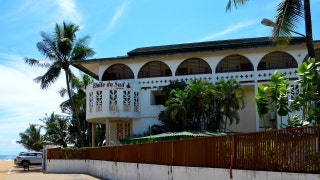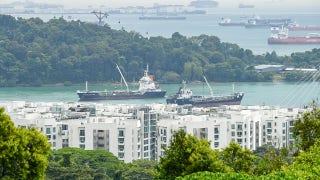
Italy will immediately begin to limit large cruise ship traffic in the Venice lagoon. (Reuters)
MILAN – A special commission on Tuesday approved a plan to divert cruise ships away from Venice's historic center by 2016, but activists seeking to rid the city of the giant ships expressed reservations about the proposed new route.
The fatal sinking of the Costa Concordia in January 2012 ratcheted up pressure to divert the ships from the central Giudecca canal and St. Mark's Basin. Currently, cruise ships pass within 300 meters (1,000 feet) of St. Mark's Square, granting a stunning view to those aboard the ship but presenting a jarring sight against the backdrop of Venice's Byzantine architecture.
Venice Mayor Giorgio Orsoni said the decision "finally inverts the tendency toward gigantism in the lagoon."
A commission comprised of government ministers and local officials approved digging a new canal so ships can enter the lagoon from the west, avoiding the historic center, Premier Enrico Letta's office said in a statement. The Venice Port, which campaigned successfully to preserve the existing passenger terminal, estimates the project will take two years to complete.
A committee of citizens opposed to the cruise ship traffic in Venice called the ship diversion "a first victory for our movement," but said it will now concentrate its campaign on the environmental impact of the new canal, calling that project "devastating."
In the meantime, smaller ferries will be banned beginning in January from passing through Venice, reducing traffic in front of St. Mark's by one-quarter, while cruise ship traffic will be reduced by 20 percent. Last year, 661 cruise ships arrived with 1,775 passengers, according to Venice Passenger Terminal statistics.
As of Nov. 1, 2014, ships larger than 96,000 tons, with a capacity of 3,000 to 3,500 passengers, will be banned from Venice.
Venice in the space of just over 15 years has become one of the world's most important cruise destinations, with up to nine cruise turnarounds a day in high season. The new measures would limit to five the number of cruise ships berthed at one time, and restrict passage to sunrise and sunset.








































